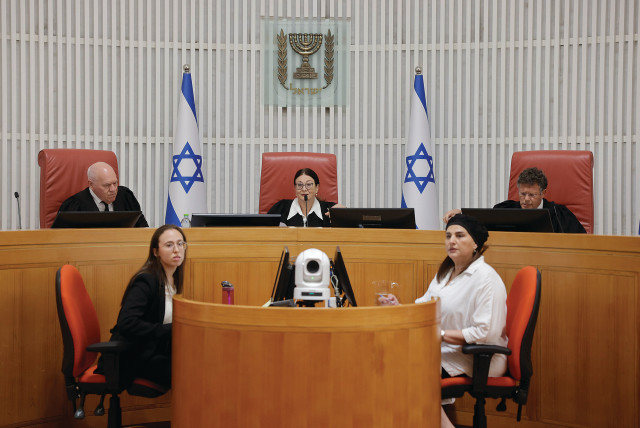A-G allows Yariv Levin request for separate legal representation

Usually, the Attorney-General’s Office represents the government and officials in all legal matters, but in exceptional situations, the office may approve outside counsel.
Attorney-General Gali Baharav-Miara will permit Justice Minister Yariv Levin to have separate legal representation for the upcoming High Court of Justice hearing on petitions against the Law to Cancel the Reasonableness Standard, the Attorney-General’s Office said Wednesday.
Usually, the Attorney-General’s Office represents the government and officials in all legal matters, but in exceptional situations, such as this one, the office may approve outside counsel.
The approval came at Levin’s request in response to Baharav-Miara’s contrary position on the Law to Cancel the Reasonableness Standard.
Historic High Court case on judicial reform
Baharav-Miara said the hearing on September 12 constituted an unusual event that dealt with unprecedented and highly sensitive issues, as demonstrated by the decision to field a full 15-justice bench to preside over the case.
The court has never before struck down an amendment to a basic law, and it is hotly contested whether the judiciary has the power to engage in judicial review of the quasi-constitutional articles.
The Law to Cancel the Reasonableness Standard is the first judicial reform legislation to be approved by the Knesset since Levin announced the legal overhaul on January 4. The law passed on July 24 to the chagrin of the opposition and the myriad of protest groups that had taken to the streets in mass demonstrations.
The law restricted the reasonableness standard, which allowed judicial review of government administrative decisions that were deemed beyond the scope of what a reasonable and responsible authority would implement. The court can no longer review administrative decisions or inaction by the prime minister, ministers, or government, but it can still challenge those by civil servants.
Petitioners have claimed that the law abuses the constitutional authority of the Knesset by going against constitutional norms and being passed through improper procedures. Basic laws are supposed to define the structure, rules, and powers of the state, rather than specific powers, the petitioners argued.
The bill was also submitted as a committee bill rather than a private bill. Committee bills deal more with technical matters and avoid a preliminary reading and 45-day waiting period.
The petitioners also contend that the law upends the rule of law and separation of powers by removing a vital tool of the court and the government’s requirement to explain its reasoning.
Part of the judicial reform also touches upon the role of government legal advisers and the attorney-general and their relationships with the government.
Reformists maintain that legal advisers should offer opinions in line with the government, and that officials should always be able to seek outside legal representatives.
National Security Minister Itamar Ben-Gvir (Otzma Yehudit) had a public spat with Baharav-Miara in May, before his June 7 police law High Court hearing, until he was allowed to represent himself on May 15.
Jerusalem Post Store
`; document.getElementById("linkPremium").innerHTML = cont; var divWithLink = document.getElementById("premium-link"); if (divWithLink !== null && divWithLink !== 'undefined') { divWithLink.style.border = "solid 1px #cb0f3e"; divWithLink.style.textAlign = "center"; divWithLink.style.marginBottom = "15px"; divWithLink.style.marginTop = "15px"; divWithLink.style.width = "100%"; divWithLink.style.backgroundColor = "#122952"; divWithLink.style.color = "#ffffff"; divWithLink.style.lineHeight = "1.5"; } } (function (v, i) { });

